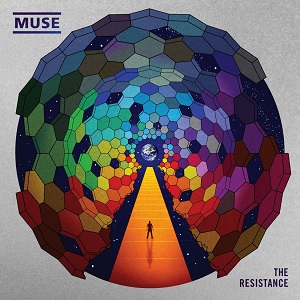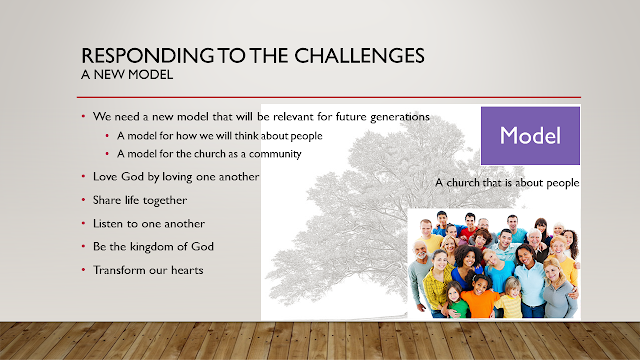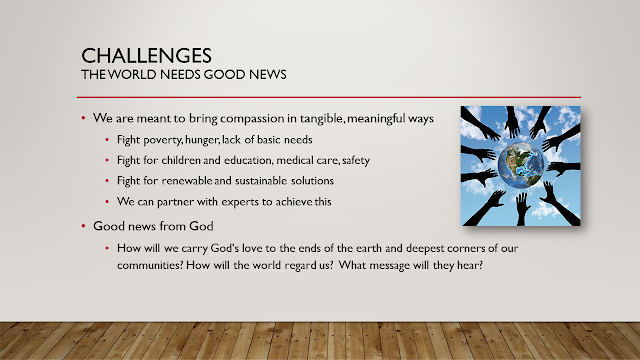Thank you Kelly Dahlman-Oeth for permission to repost your article on my blog.... Brad
It took longer than I thought, and it's much too long for a single facebook post, but...
Dear white, male, heterosexual, U.S. born or naturalized, self-identified Christians,
I am a white, college educated, heterosexual, married, father-of-four, U. S. born and raised, ordained and appointed United Methodist, male, Christian. I place “Christian” at the end as the noun, as it is what I hold as most important. It is what I strive most to govern all that I do and say. The sum of the other descriptors add up to my being one among the majority group (i.e. I have almost all of the power and privilege anyone can have.)
It’s important for me to you know who I am as much of what I write here is about how I intend to use that power and privilege.
I understand that many of you have been struggling for some time during the slow recovery of our economy. While my family has had to make some adjustments to our budget, we have not experienced the hardships that many of you and others have.
As a pastor, I have worked with and tried to help hundreds of others (white and non-white) who have lost their employment, income and housing. Indeed in the past four years, the church that I led assisted over 150 households (individuals and families) move from living in their vehicles in our parking into housing.
I also know that many of you (63% of white men) recently cast a vote for president-elect Donald Trump. I do not presume to know all the reasons that you cast that vote. I do know from polls, interviews and conversations that I’ve had, that many of you cast your ballot as a protest vote against “politics as usual” and with the hope that radical change and the promises of Donald Trump and other republicans will improve your financial, employment, housing, health and overall situation.
It is certainly my hope and desire that our elected officials and all of us will work together to improve the lives of everyone in our great country. While that is my hope, I do not have much confidence that president-elect Trump, the new congress and all of us in the white male majority share that goal. Let me explain why, as I also try to explain why I how (and why) I will be using my power and privilege.
While I will certainly continue to help white men and women who struggle, I now have a much greater Christian mandate to stand with, advocate for and protect non-white men. Why? First and foremost, because Jesus was absolutely 100% clear that the ethics of the Kingdom of God command us to care for the poor, marginalized, oppressed, victimized, and vulnerable without regard to race, nationality, gender, or even faith.
You may be inclined to tell me that you separate your faith from your U.S. citizenship. However, I cannot find any support for that in the gospel. Indeed, the words of Jesus and much in the New Testament epistles, clearly state that Christian disciples are ‘resident aliens’ here on earth and our citizenship and allegiance belong singularly to the Kingdom of God. In other words, as I stated in my opening sentence, we are Christians, everything else is an adjective describing some secondary characteristic (see Paul’s point that we are “neither male nor female…”)
So, any argument that “politics do not belong in church” is completely unbiblical. Certainly, our earthly partisan republican and democrat politics cannot come close to representing the wholeness of Jesus’ politics. However, the very singular claim that “Jesus is Lord” is the most political statement we can make.
My claim that Jesus is Lord, brings me back to why I must now do all that I can, to stand with, advocate for and protect non-white men.
After January 28th, we will be living in the geographic boundaries governed by a man (and a congress that he has tried to bully into his image.) Donald Trump’s campaign has been overtly pro-white. While we could claim that a pro-white stance is not anti-everyone else, no one can deny the countless racist, misogynistic, anti-Mexican, anti-Muslim, anti-Jewish, xenophobic, journalist bashing, statements that Donald Trump made over the course of the last 19 months in the debates, dozens of rallies and interviews. The video and audio is now a matter of historic public record.
I've heard and read countless Trump supporters and voters say "I care more about what she did, than what he said." That's fine. We no longer need to worry about Hillary Clinton getting into office, and despite two FBI reviews, leading Republicans of the House Oversight Committee seem determined to continue to investigate her until they find something to convict and imprison her.
Therefore, we can, and must, now focus all our attention on the reality of what president-elect Donald Trump has said. In part, because he has already fueled animosity toward minorities and normalized hate speech in our country.
Should you choose to question that claim, a friend recently told me about a meeting they attended in the days leading up to the recent presidential election. Elected officials and others had gathered to address concerns in their respective communities. At some point in the meeting, one of the elected officials referred to Hillary Clinton as a “that c*nt.” Hopefully, that is as shocking and alarming to most of you as it is to me.
I find it very difficult not to lay blame at the feet of Mr. Trump, given his own words, his pattern of adultery, divorce and remarriage and the recent stream of accusers. Indeed, I find it incredibly difficult to believe that he is not a sexual predator.
To be clear, my shock is not a prudish response about crass language. My shock and alarm is that this white elected official felt comfortable to openly reduce, demean and dehumanize a woman by referring to her as a profane reference of her genitalia.
If anyone still thinks that Donald Trump’s hate speech was “just talk” and we should all just ignore it and “join together” and “give him a chance,” I must say, “Stop!” Hate speech spreads, and the more normalized and acceptable it becomes the more hate crimes will occur.
Perhaps you’ve heard about the fliers that were posted on the campus of Texas State University after Donald Trump’s election stating: “Now that our man TRUMP is elected and republicans own both the senate and the house — time to organize tar & feather VIGILANTE SQUADS and go arrest & torture those deviant university leaders spouting off all this Diversity Garbage…"
Maybe you’ve read about the white middle school children in Michigan that began chanting “build the wall” while their latino classmates cried. The list of similar behaviors is growing after only one day.
These are the next step toward putting hate speech into action. Once we reach the tipping point where the majority group in power is willing to rationalize such language and eventually violent acts, the reasonably civil democracy that we have lived in will be lost.
So, if you want to “wait and see” while you give Donald Trump and his congress “a chance”, so be it. However, if you are truly interested in "coming together to make our country great" as many of you have said to me, especially those of you who claim that Jesus is Lord, I invite to join me.
Because I claim Jesus as Lord, I am compelled by the Gospel of Jesus Christ to stand with and speak up for and act for justice alongside those in minority groups who are now justifiably terrified. First, I invite you to join me and repeating what I have from many of them: "unless you are one of the vulnerable minorities speaking to your vulnerable minority group (female, black, latino, LGBTQ+, undocumented, Muslim, etc.) you do not have any credibility telling them 'to calm down', 'stop overreacting,' 'let's give him a chance', 'let's wait and see,' or anything else that tries to silence them or stop them from advocating for themselves.
I know that leading up to the recent election, many of you felt that you were the overlooked minority. It turns out, we weren’t and aren’t; we white folks still make up over 70% of the voting population, and clearly we are well represented in government. However, there are millions who are and have been for most of U.S. history an overlooked and underrepresented minority. While some of them were making some progress, and perhaps feeling a bit safer, the scales of justice and equality have once again been weighted toward us and against them.
I am compelled to put a human face on these “minority groups” about whom I’ve written.
I fear for my 18-year old daughters as they make their way through college in a culture where sexual assault is rampant and female victims often feel too intimidated to come forward in part because we are relatively dismissive of their claims of rape and sexual assault.
I have many very dear friends who have been in same-gender relationships some for 20 years or more. They have raised amazing children, who are amazing young adults. None of these friends have an agenda to push on others other than the earnest desire to be given the same rights and treatment as other mature, consenting married couples.
My black friends and dear members from congregations I’ve served who are in biracial marriages or have mixed race families have all shared experiences of being pulled over by police more than once for practically no reason. They were completely respectful and did not experience any escalating tension or violence. I have great respect for our law enforcement and I grieve for every family who loses an officer in the line of duty, but I must say, n all my years as an adult driving in Atlanta, Chicago, and the Seattle area, I have never been pulled over unless I was speeding or violated some other traffic law, and whether I received ticket or not, I was always treated with the utmost respect. I firmly believe we have a significant racial bias in this country that has seeped into our law enforcement, likely in unconscious ways, but not always.
I have friends who have been in this country illegally for over 15 years. They have children that were born here. They are the hardest working people I have ever met. I do not know any white people, including my own family, who would do the work that they do: hard labor, long hours, low wages with no benefits. They do not accept handouts or seek any government assistance (in part because any encounter with the government terrifies them.) They love this country and its people.
I know a few young adults who are transgender. I’ll tell you up front, I still don't quite get it, but they are always very loving and patient with me as I ask questions that must be stupid at best, and shamefully embarrassing at worst. They are incredibly dear souls who live in fear that any day someone will discover that they are transgendered and they will be humiliated, beaten, raped or killed. A fear that is obviously quite justified if you read the news.
I am very close to a young man whose family immigrated from Egypt. He was born here in the U.S. He and his family are Muslim. Sometimes when he has worn the traditional checkered scarf called a Kufiya, people have told him to “be careful” and in one instance yelled some slur from a car. He is one of the most respectful young men I’ve met.
These folks and others I know and love are rightfully concerned by what Donald Trump has said about them. What he has said he plans to do will have a profound impact on them. Perhaps more importantly, they and I am terrified by the fever pitch of hatred that Donald Trump has stirred in our country.
I know that there have been one or two incidents of violence against Trump supporters. This is equally wrong, but no less a result of what is being birthed by the hatred and division of Mr. Trump’s words.
However, I have very little concern for my safety or yours. We have about as much privilege and status as anyone can get in America as straight, white, heterosexual, married, educated, employed, housed, financially stable, male Christians.
With all that privilege and power, and above all else, because Jesus is Lord, we bear tremendous responsibility to do everything we can to keep all vulnerable people from harm and to protect their rights to fair and equal treatment. I know that some of you have struggled financially and may have suffered much greater loss than I. I certainly have not experienced loss of privilege, safety or power resulting from a granting of equal rights or protections to these minority groups. So far, even the white men I’ve met have been unable to tell me exactly how they have suffered directly from rights and just treatment granted to minority groups (e.g. “I was denied housing in a predominantly black neighborhood,” “ I was not allowed to be at my wife’s bedside because lesbians have been granted that right,” “I have been put on a “watch list” because I am a Christian,” “I have been mocked and beaten by a group of transgendered people because I’m straight and I walked into the wrong bar”…)
Brothers, there is no denying that our government is a mess, white and black, gay and straight, citizens and undocumented, Muslim and Christian have all been struggling for some time. I won’t argue that we need to seriously overhaul our government and rid it of corruption. But, we have now elected a man whose words and actions are antithetical to the teachings of Jesus Christ. The seeds planted by his openly hostile remarks, intentions and plans are already springing up like weeds.
He has also shown how irrational, unpredictable, and undisciplined he can be. He has shown a pattern of retaliation against anyone who has opposed him (most recently Lindsay Graham as expressed the morning after the election by Omarosa Manigault.)
You and I may hold different political views based on our understanding of the life and teachings of Jesus, but I trust that we agree that Donald Trump’s vile speech and recent growing racist, anti-Muslim, white supremacy behaviors are antithetical to the life and teachings of Jesus Christ. While some white nationalist may try to hijack our faith, I know that you are NOT racist, Mexican-hating, anti-Muslim, gay bashing, woman haters.
So, I pray that you will join me in challenging president-elect Trump about his hostile speech and threats. Christian brothers, please join me in using your position of power and privilege to confront the growing threat of hate speech and violence against our sisters and non-white brothers and sisters.
If you truly want to join together to make “America Great Again,” I pray you’ll join me in demanding that this man stand up and apologize publicly for each and every hateful comment he’s made about women, blacks, Mexicans, Jews, Muslims, GLBTQ+ folks, journalists, etc. Then demand that he fulfill his promise to bring law and order back by first deploying as many as necessary to find, arrest and rehabilitate every individual and hate group member responsible for the growing rash of behaviors that we are seeing.
If you do that and we see Donald Trump carry those things out and continue to work for every person in this great nation for the next four years, I will make you a promise. I'll vote that man into office for a second term.
If you are not able or willing to join me, please consider this one last request. Do not ask my vulnerable brothers and sisters to “calm down” or “wait and see.” They do not need us diminishing their concerns. They do not have luxury of waiting for something to happen.
I will continue to offer compassion to all who come to me in need regardless of the characteristics that make them who they are. But it is now time for me to give even greater attention to bring the full weight of my privilege and power to protect those who now even more vulnerable than before.
Filled with the love of Christ, your brother,
Kelly Dahlman-Oeth


































